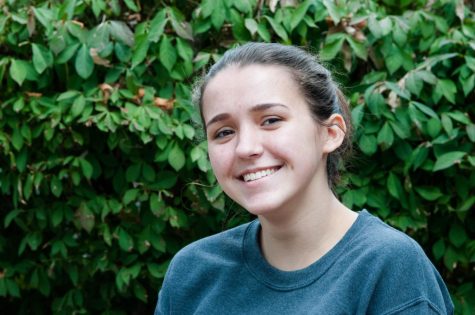
Megan Munson is a co-editor-in-chief for the 2017-2018 school year. She was a reporter for the 2016-2017 year and absolutely fell in love with journalism....
Apr 13, 2018
For bustling high schoolers, it is often too time-consuming or expensive to commit to growing beefriendly gardens or buying locally-sourced crops. It can feel impossible to live a green lifestyle underneath someone else’s roof. However, some Inglemoor students have taken matters into their own, green-thumbed hands through involvement in sustainable food and agriculture.
Last summer, senior Jerry Cao explored his interest in bioengineering through an internship at Project Feed 1010. Project Feed 1010 is working to explore sustainable agriculture through aquaponics.
“Aquaponics is the combination of aquaculture, which is the raising of fish and hydroponics, which is the growing of plants in water or nutrient-rich solution,” Cao said. “The goal of the program is to get students to go out and integrate aquaponics into their community.”
For Cao, this internship was more than just a resume builder. He said that his interest in bioengineering made Project Feed 1010 a great experience for him.
“I thought this was a really good opportunity and it was something that needed to be done, especially because there’s so much about traditional agriculture that makes it really bad [for the environment]. For example, aquaponics allows you to save 90 percent of the water that would be used by traditional agriculture because of runoff,” Cao said.
When it comes to making aquaponics more accessible for all students, Cao said that he thinks there are options.
“Other ambassadors have integrated it into schools. It could be integrated into the ecology unit for biology, as it is something that could be a great teaching tool,” Cao said. “People are usually surprised that you can grow plants in water.”
Although she isn’t growing her own plants, senior Alison Mador has also considered sustainable agriculture as a way to reduce her impact. To reduce her impact, she changed her diet by cutting out dairy, meat and all other animal products.
“I initially went vegan for health reasons,” Mador said. “Then I started learning about the ethical reasons for going vegan and how animals are treated in agricultural settings. That’s not something I wanted to continue to support.”
Mador said that her initial findings about the impacts of agriculture only drove her towards further research.
“From an environmental standpoint, [agriculture] is not good,” Mador said. “One of the scary statistics is that we could see fishless oceans by 2048. It’s not beneficial for anybody involved — especially not the animals.”
Although some consider the switch to a vegan diet drastic and difficult, Mador said that this wasn’t the case for her.
“It wasn’t actually too hard for me because I had done a lot of research, so I was pretty educated,” Mador said. “I did it overnight, and I didn’t really look back.”

Megan Munson is a co-editor-in-chief for the 2017-2018 school year. She was a reporter for the 2016-2017 year and absolutely fell in love with journalism....